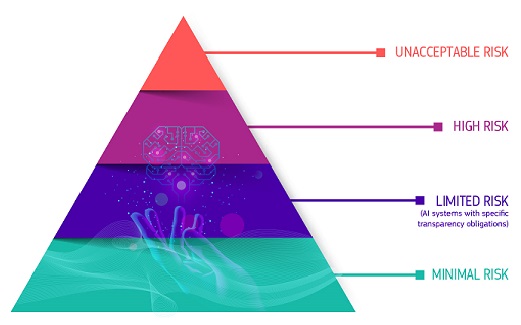When was Euroscepticism born? Difficult and tricky question!
Some would claim that Euroscepticism is as old as European Union, some others would say the iron lady Margaret Thatcher was the first to inspire it. [ref] Margaret Thatcher’s position can’t be summarised in one word: basically she was in favour of European Union, as long as it regarded trade and defense, and instead opposing it as the symbol of the centralisation of power in a federalist conception. [/ref]
It can be affirmed both the statements are true! But why?
Euroscepticism has a lot of facets, including rejectionist claims which snowball to also gather reformist ideas, which generally accept the advancing integration with constructive criticism.
Regardless of the positions, the critique, more or less intense towards European institutions has a common denominator: the democratic deficit.
Rejectionists definitely want to get rid of the EU, and their desire has been strengthened by the fact that they had to face a deep economic crisis and, as a consequence, they felt powerless in front of the big structure of the EU where they think they are under-represented. Democratic deficit is for them something which absolutely can not be overcome.
In the case of reformists, democratic deficit is an aspect which should be further investigated and analysed. The main points are:
- European Union management consists of executive power without national parliamentary control;
- Weakness of the European Parliament, which is not involved in the legislative process at the same level as the Council is;
- The elections are not European, since citizens are not voting for any European party. Elections are still conceived at national level and for national goals to be reached within European Union;
- the European Union’s institutions are too distant from voters.
It is this last point that makes Euroscepticism so deeply-rooted in the overall experience of the European Union.
While the other positions could be easily dismantled saying that the characteristics to be present in the structures of any democracy (like representative, transparent and accountable institutions) could be proved to exist within EU and that it is not lacking specific qualities, the last point is more personal. In one sense, it involves emotions, interests and dare we say, also commitment to being a responsible EU citizen who pro-actively looks for EU initiatives, without waiting for EU to reach him.
However, relating to the main points listed above, the fairness of having members of the Council and the Commission elected by national governments, instead of citizens, is highly debatable, since anyway governments at national level are elected by people.
Transparency and accountability are very subjective. There is much disagreement about how exactly citizens evaluate the EU and its democratic performance. Do most Europeans decide whether to put trust in the EU based on their understanding of actual policies coming from Brussels? Or, do they rely on signals from their home countries (e.g. the health of their national economy), in deciding whether to put trust in the EU? The evidence supports the latter: for example, purely domestic events, such as changes in national government that are usually followed by a quick “honeymoon” of increased trust in national institutions, also boost trust in the EU.
The following question comes naturally: is the perception of a democratic deficit within EU the result of bottlenecks and poor communication at national levels with regards to the EU institutions? Or is it the outcome of bad European management?
Does the democratic deficit impact more on rejectionist claim or on reformist ones?
Whether the democratic deficit is really present or not, it is clear that reformists are concerned about it and are more likely to hope for a more inclusive European Union for the future. That’s the kind of Euroscepticism we should encourage: not a destructive approach, but a sensible and constructively critical one, which is contributing to a healthier growth of the European Union tomorrow and beyond.
When was Euroscepticism born? Difficult and tricky question!
Some would claim that Euroscepticism is as old as European Union, some others would say the iron lady Margaret Thatcher was the first to inspire it. [ref] Margaret Thatcher’s position can’t be summarised in one word: basically she was in favour of European Union, as long as it regarded trade and defense, and instead opposing it as the symbol of the centralisation of power in a federalist conception. [/ref]
It can be affirmed both the statements are true! But why?
Euroscepticism has a lot of facets, including rejectionist claims which snowball to also gather reformist ideas, which generally accept the advancing integration with constructive criticism.
Regardless of the positions, the critique, more or less intense towards European institutions has a common denominator: the democratic deficit.
Rejectionists definitely want to get rid of the EU, and their desire has been strengthened by the fact that they had to face a deep economic crisis and, as a consequence, they felt powerless in front of the big structure of the EU where they think they are under-represented. Democratic deficit is for them something which absolutely can not be overcome.
In the case of reformists, democratic deficit is an aspect which should be further investigated and analysed. The main points are:
- European Union management consists of executive power without national parliamentary control;
- Weakness of the European Parliament, which is not involved in the legislative process at the same level as the Council is;
- The elections are not European, since citizens are not voting for any European party. Elections are still conceived at national level and for national goals to be reached within European Union;
- the European Union’s institutions are too distant from voters.
It is this last point that makes Euroscepticism so deeply-rooted in the overall experience of the European Union.
While the other positions could be easily dismantled saying that the characteristics to be present in the structures of any democracy (like representative, transparent and accountable institutions) could be proved to exist within EU and that it is not lacking specific qualities, the last point is more personal. In one sense, it involves emotions, interests and dare we say, also commitment to being a responsible EU citizen who pro-actively looks for EU initiatives, without waiting for EU to reach him.
However, relating to the main points listed above, the fairness of having members of the Council and the Commission elected by national governments, instead of citizens, is highly debatable, since anyway governments at national level are elected by people.
Transparency and accountability are very subjective. There is much disagreement about how exactly citizens evaluate the EU and its democratic performance. Do most Europeans decide whether to put trust in the EU based on their understanding of actual policies coming from Brussels? Or, do they rely on signals from their home countries (e.g. the health of their national economy), in deciding whether to put trust in the EU? The evidence supports the latter: for example, purely domestic events, such as changes in national government that are usually followed by a quick “honeymoon” of increased trust in national institutions, also boost trust in the EU.
The following question comes naturally: is the perception of a democratic deficit within EU the result of bottlenecks and poor communication at national levels with regards to the EU institutions? Or is it the outcome of bad European management?
Does the democratic deficit impact more on rejectionist claim or on reformist ones?
Whether the democratic deficit is really present or not, it is clear that reformists are concerned about it and are more likely to hope for a more inclusive European Union for the future. That’s the kind of Euroscepticism we should encourage: not a destructive approach, but a sensible and constructively critical one, which is contributing to a healthier growth of the European Union tomorrow and beyond.
When was Euroscepticism born? Difficult and tricky question!
Some would claim that Euroscepticism is as old as European Union, some others would say the iron lady Margaret Thatcher was the first to inspire it. [ref] Margaret Thatcher’s position can’t be summarised in one word: basically she was in favour of European Union, as long as it regarded trade and defense, and instead opposing it as the symbol of the centralisation of power in a federalist conception. [/ref]
It can be affirmed both the statements are true! But why?
Euroscepticism has a lot of facets, including rejectionist claims which snowball to also gather reformist ideas, which generally accept the advancing integration with constructive criticism.
Regardless of the positions, the critique, more or less intense towards European institutions has a common denominator: the democratic deficit.
Rejectionists definitely want to get rid of the EU, and their desire has been strengthened by the fact that they had to face a deep economic crisis and, as a consequence, they felt powerless in front of the big structure of the EU where they think they are under-represented. Democratic deficit is for them something which absolutely can not be overcome.
In the case of reformists, democratic deficit is an aspect which should be further investigated and analysed. The main points are:
- European Union management consists of executive power without national parliamentary control;
- Weakness of the European Parliament, which is not involved in the legislative process at the same level as the Council is;
- The elections are not European, since citizens are not voting for any European party. Elections are still conceived at national level and for national goals to be reached within European Union;
- the European Union’s institutions are too distant from voters.
It is this last point that makes Euroscepticism so deeply-rooted in the overall experience of the European Union.
While the other positions could be easily dismantled saying that the characteristics to be present in the structures of any democracy (like representative, transparent and accountable institutions) could be proved to exist within EU and that it is not lacking specific qualities, the last point is more personal. In one sense, it involves emotions, interests and dare we say, also commitment to being a responsible EU citizen who pro-actively looks for EU initiatives, without waiting for EU to reach him.
However, relating to the main points listed above, the fairness of having members of the Council and the Commission elected by national governments, instead of citizens, is highly debatable, since anyway governments at national level are elected by people.
Transparency and accountability are very subjective. There is much disagreement about how exactly citizens evaluate the EU and its democratic performance. Do most Europeans decide whether to put trust in the EU based on their understanding of actual policies coming from Brussels? Or, do they rely on signals from their home countries (e.g. the health of their national economy), in deciding whether to put trust in the EU? The evidence supports the latter: for example, purely domestic events, such as changes in national government that are usually followed by a quick “honeymoon” of increased trust in national institutions, also boost trust in the EU.
The following question comes naturally: is the perception of a democratic deficit within EU the result of bottlenecks and poor communication at national levels with regards to the EU institutions? Or is it the outcome of bad European management?
Does the democratic deficit impact more on rejectionist claim or on reformist ones?
Whether the democratic deficit is really present or not, it is clear that reformists are concerned about it and are more likely to hope for a more inclusive European Union for the future. That’s the kind of Euroscepticism we should encourage: not a destructive approach, but a sensible and constructively critical one, which is contributing to a healthier growth of the European Union tomorrow and beyond.






















































































































































